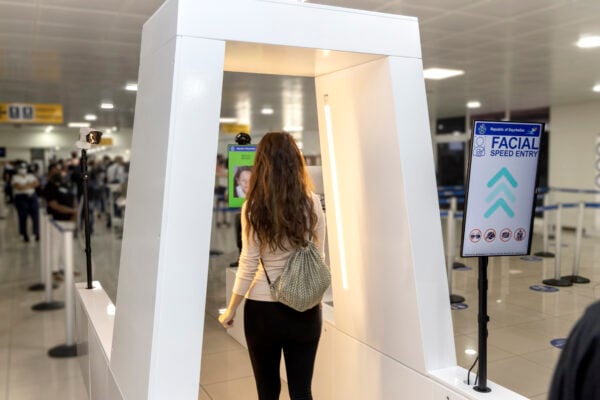Advanced Passenger Information (API) and Passenger Name Record (PNR) data are two critical tools that significantly enhance the capabilities of border security agencies. By leveraging these data sets, countries not only improve their security and risk-assessment but also streamline border processes, enhancing the overall travel experience.
Understanding API and PNR
Advanced Passenger Information (API) refers to specific biographic data collected about the traveler and the flight. This information includes the passenger’s name, date of birth, nationality, and flight details like flight number and destination. API data is typically provided by airlines at different intervals before departure, giving the destination government ample time to vet each passenger onboard the aircraft.
Passenger Name Record (PNR) data, is also biographic data but involves a larger number of data fields. PNR data is typically provided by airlines starting at 72 hours prior to scheduled flight departure. It encompasses a wide range of information provided by passengers when booking tickets, including travel itineraries, contact details, payment information, and even special service requests. The broad range of PNR data elements collected by the airlines, helps governments conduct a deeper analysis of travelers.
How API-PNR data helps border agencies
Pre-Arrival Screening and Risk Assessment
One of the primary benefits of API-PNR data is the ability to conduct pre-arrival screening of passengers. By analyzing this data before the passenger arrives at the border, security agencies can identify potential risks and threats in advance. For instance, API data can be cross-referenced with watchlists and databases to flag known bad actors or identify individuals who meet specific criteria and may pose a security threat.
PNR data collects additional data elements to provide essential context to help identify known-unknown and unknown-unknown travelers that may pose a security threat to the nation. By utilizing effective profiling rules and sophisticated AI algorithms, PNR data becomes extremely useful for adopting a proactive and predictive approach to securing the borders. For example, an individual booking last minute and travelling with no luggage may prompt further examination.
The Travizory API-PNR Targeting System possesses the most advanced risk engine on the market. It utilizes 5 profiling engines (including AI and ML) to help classify passengers based on perceived threat level, anticipate unknown risks and establish relationships and networks among travelers. Ultimately, the system helps authorities to plan effective interventions, such as conducting additional screenings or denying entry to high-risk individuals, thereby mitigating potential security threats.
Improved Border Entry / Exit Efficiency
Accessing API-PNR data before a scheduled flight departure from the country of origin significantly improves the efficiency of border processes, reduces queues and lowers the administrative burden on front line officers. Sorting each passenger according to their designated risk profile means that low-risk passengers are fast-tracked through border checkpoints. The Travizory API-PNR Targeting System can be integrated with the Travizory Biometric Travel Authorization system to enhance security even further. Together, the systems operate as a complementary system to validate travel documents and verify traveler identity. The availability of facial biometric data builds a more precise traveler profile for risk assessment, verification, and classification. API-PNR systems allow border officers to focus their efforts on passengers who require additional scrutiny. The result is a smoother, more efficient border experience for legitimate travelers.
Enhanced Intelligence and Collaboration
API-PNR systems are meant to combat transnational crime and terrorism and therefore are designed to foster a culture of collaboration. The processed data provides valuable intelligence that can be shared across different local agencies – such as the Police, Immigration, Intelligence or Customs. In the presence of bilateral or multilateral agreements, countries could also share such intelligence information to track the movements of individuals involved in illegal activities, such as human trafficking, drug smuggling, or organized crime.
With Travizory’s API-PNR Targeting System officers have access to a single platform, which connects to the governments existing ecosystem therefore encouraging collaboration and coordination between agencies. This integrated approach removes inefficiencies and reduces duplicate work, ensuring persons of interest are flagged to all relevant agencies. Reflecting the realities of multi-agency work, Travizory’s API-PNR Targeting System can limit access based on clearance levels and allow agencies to set up private watchlists or rules to maintain operational independence where needed.
Eliminating a silo mentality at the border is crucial to tackling modern threats. Shared intelligence ultimately leads to more informed and timely decision-making and a collective strengthening of security measures.
Privacy and Data Protection Considerations
While the benefits of API-PNR data are clear, it is crucial to address privacy and data protection concerns. The collection and use of passenger data must comply with ICAO, WCO, and IATA regulations, GDPR, and national laws, ensuring that individuals’ rights are protected. Robust data protection measures, including encryption, secure storage, and strict access controls, are essential to maintaining public trust and preventing misuse of sensitive information. Privacy by design principles are fundamental to the development of Travizory’s BorderTech solutions and are in-built into the Travizory API-PNR Targeting system.
Conclusion
API-PNR data, when leveraged correctly, can enhance border security. Travizory’s API-PNR Targeting System is a powerful tool for enhancing border security, supporting a proactive approach to identifying and mitigating potential threats. By enabling pre-arrival screening, improving border efficiency, fostering international collaboration, and ensuring privacy protection, API-PNR data contributes to a safer and more secure travel environment. As global travel continues to evolve, the integration of API-PNR data into border security frameworks will grow in importance and impact for countries looking to maintain the delicate balance between security and convenience.
BLOGS
Latest articles


